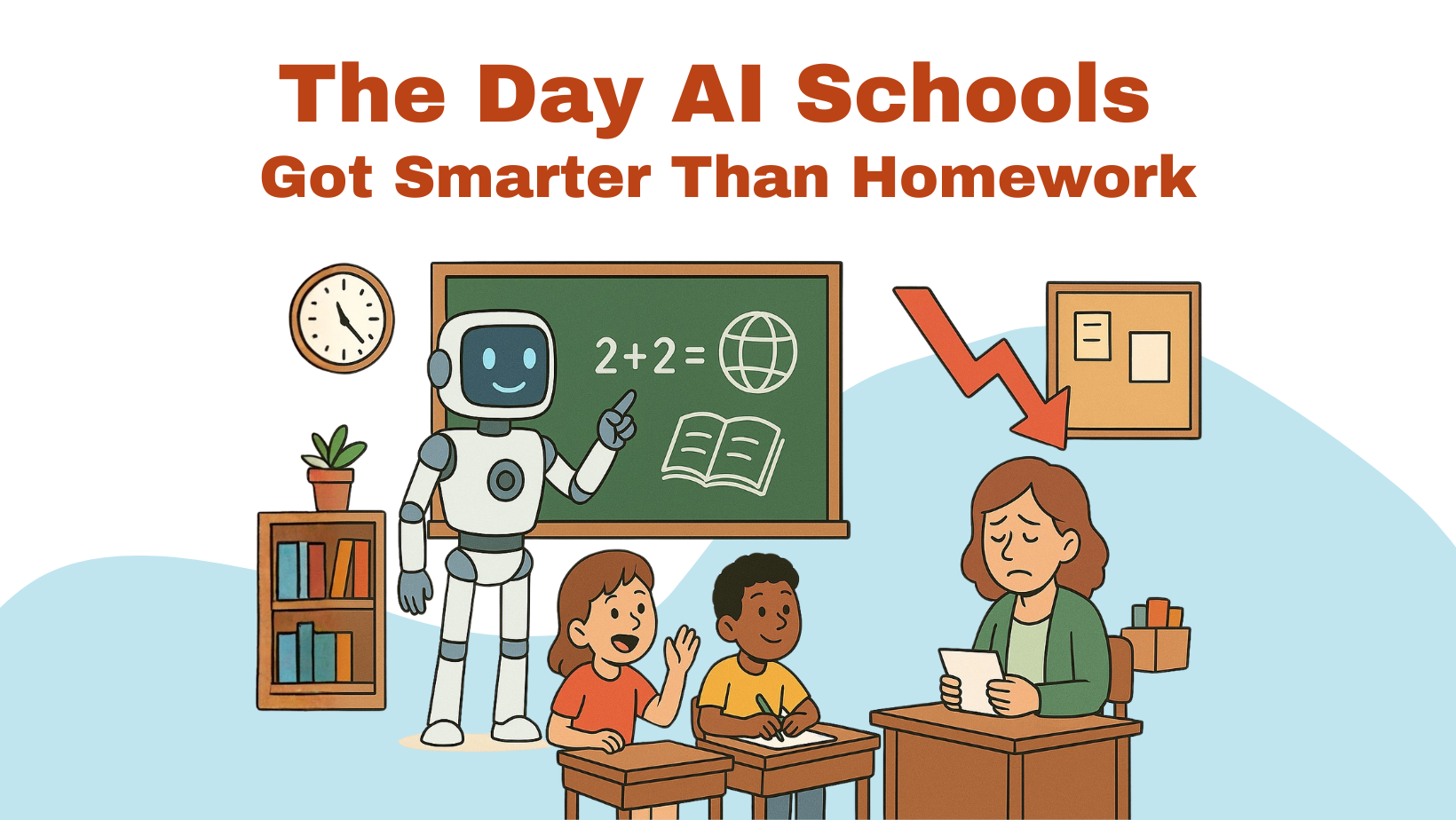
📚 Alpha Schools: When Education Met Its Algorithm
First they came for the calculators, and teachers said nothing — because, honestly, math was never the fun part.
Then they came for the essays, and we shrugged — Grammarly had already been grading us for years.
Then they came for the attendance sheets, the lesson plans, and the homework — and still, we stayed calm.
And when they finally came for the teachers… even the robots took notes.
AI is already here — not the future, the present. Good news? That means we’re alive for the upgrade. Let’s find out how.
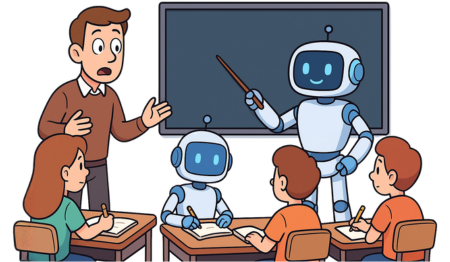
🤖 The Day AI Got Funnier Than Teachers
Then AI did the unthinkable: it started telling better jokes than the teachers themselves. That’s when education realized it might have a problem — because once robots start delivering punch-lines better than the front of the class, the job descriptions may need a rewrite.
Welcome to the age of Alpha schools — where learning happens faster, homework is extinct, and the future of teaching is officially on the endangered species list. And no, this isn’t sci-fi — these “AI schools” are already open.
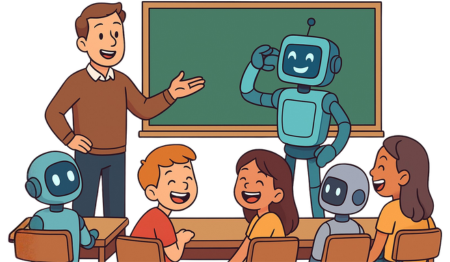
🏫 Only Two Hours of School?
Let’s be honest — school hasn’t really changed since chalk was cutting-edge technology. We’ve just swapped blackboards for whiteboards, pencils for touchscreens, and detention for digital burnout. But somewhere in the U.S., a few schools decided to skip the meeting where “tradition” was supposed to be defended.
They call themselves Alpha schools, and their mission sounds suspiciously like science fiction: finish your core subjects in two hours (yes, tracked and personalized), then spend the rest of the day being creative, curious, and — wait for it — human.
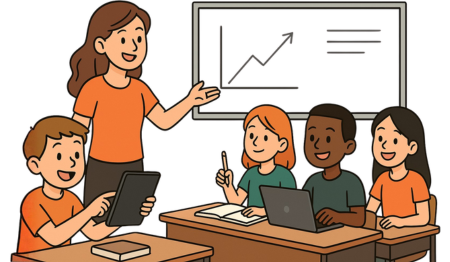
💸 Should Teachers Start Worrying About Their Paychecks?
In these schools, AI doesn’t replace teachers (at least not yet); it assists them. It handles the boring stuff — grading, feedback, tracking progress. Students move at their own pace. Math? Done in an hour. Reading? Personalized to how you learn.
Suddenly, school feels less like a factory and more like a lab — one where curiosity isn’t punished with homework. And just like that, education finally got its long-overdue software update.

🧠 When School Finally Got an Upgrade
If schools were apps, most would still be running on Education 1.0 — the version where students sit in rows, memorize data, and pray for the bell to save them.
The Alpha model, on the other hand, feels like Education 5.0 — sleek, personalized, and slightly rebellious.
In Alpha Schools, AI becomes your academic assistant, not your replacement. It helps you move at your own pace.
Math? Done in an hour.
Reading comprehension? Tailored to how you learn.
Suddenly, students aren’t competing against each other; they’re competing against yesterday’s version of themselves.

🎨 When Learning Remembered How to Be Fun
The rest of the day? That’s when things get wild — creative projects, leadership labs, community innovation.
It’s the kind of education that reminds you learning was supposed to be exciting before someone decided to measure it with standardized tests.
Here, curiosity isn’t a distraction — it’s the curriculum.
But while students thrive, what about the humans who used to run the show (el espectáculo)?

💬 YES! What About Real Teachers?
¿Y los maestros de verdad? Here’s the uncomfortable truth: teachers have always been more than lesson deliverers. They’re comedians, counselors, referees — and sometimes undercover magicians.
No AI can yet detect when a student’s “I’m fine” actually means “me estoy cayendo a pedazos” (I’m falling apart). No algorithm can see the spark in a kid’s eyes when they finally understand something — and that’s what makes human teaching irreplaceable.
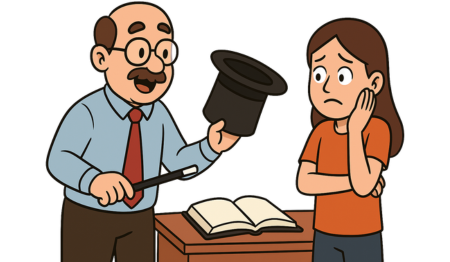
¿La IA va a reemplazar a los profesores humanos?
Just because robots aren’t showing up to staff meetings yet doesn’t mean teachers can relax.
The real question isn’t “Will AI replace teachers?” but “¿Qué maestros aprenderán a bailar con la inteligencia artificial?” (Which teachers will learn to dance with AI?)
Those who do? They might just become more indispensable than ever.

🧩 Can Empathy Be Programmed?
AI can explain the Pythagorean theorem in six languages and infinite patience, but it can’t explain heartbreak. It can tutor, but not mentor.
Education, at its best, isn’t just about getting smarter — it’s about getting human-er.
That’s where Alpha Schools seem to get it right: AI teaches information, but humans still teach meaning.
Maybe the future of education isn’t AI versus teachers — maybe it’s both, holding hands awkwardly like two teenagers at prom, trying to figure out the rhythm.
Because once robots learn to laugh at your abuelita jokes, no career is safe — and yes, that includes the guy in room 204 who thinks puns are a personality trait.

🚀 The Alpha Generation Is Already Here
These kids will grow up fluent in both human and machine. They won’t ask, “Can I use ChatGPT for this essay?” — they’ll ask, “Why wouldn’t I?”
They’ll see AI as a tool, not a cheat. And while the rest of us are arguing about whether machines can think, they’ll already be thinking with them.
If that sounds scary, good — it means we’re paying attention.

🎓 Join the Conversation
If you’re curious about how Alpha Schools are reshaping education in the U.S., and what it means for teachers, students, and the future of learning — don’t miss our upcoming KDF talk:
“Alpha Schools in the U.S.: When Education Met Its Algorithm.”
Bring your curiosity, your doubts, and maybe your favorite robot joke. Bring your doubts, questions, and maybe your favorite robot joke. And yes — there will be free lessons waiting for you.
The future of school might be closer (and weirder) than you think.
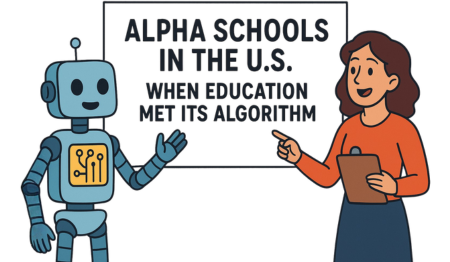
🕰️ The Ghost of Homework Past
With AI running the boring parts of school, some old rituals suddenly feel… medieval. Remember homework? That ritual where teachers punished curiosity with three extra pages of algebra?
Alpha Schools looked at that and said, “Nah.” Porque aquí está el giro — the whole idea of homework becomes meaningless when learning is already structured around efficiency and self-direction.
Students master topics through AI-assisted feedback loops and personalized challenges, so there’s no reason to pile on extra tasks.Think about it: if learning becomes mastery-based instead of time-based, the student’s reward is competence, not compliance. The ghosts of unfinished worksheets can finally descansar en paz
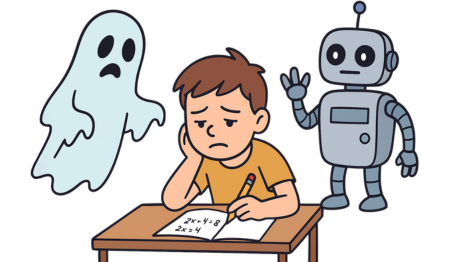
🤖 The AI Elephant in the Classroom
Of course, whenever someone hears “AI in education,” a few alarms go off: “Will robots replace teachers?” “Will kids forget how to think without prompts?”
Relax.
The truth is, AI doesn’t replace teachers — it liberates them. It takes over the repetitive, soul-crushing parts of teaching: grading, tracking progress, generating personalized exercises. That means educators can finally do what they signed up for — teach, not just administrate.
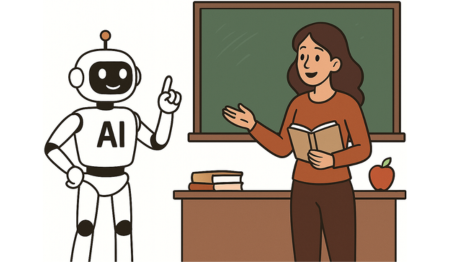
Imagine this:
- A teacher guiding creative projects instead of drowning in paperwork.
- A student learning at 1.5x speed but still getting one-on-one feedback.
- A classroom that feels more like a design studio than a detention center.
This isn’t a dystopia. It’s a reset button for education. Y sí — it’s happening right now.
With teachers freed from paperwork, students suddenly had room to do what humans do best: imagine, create, and build.
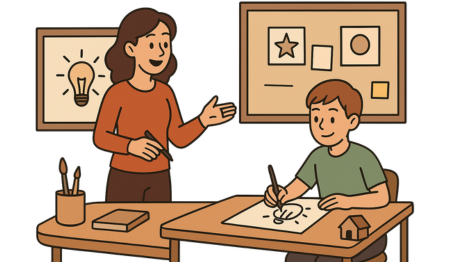
🎨 Creativity: The New Core Subject
With homework ghosts (el fantasma de la tarea) finally resting in peace, what do students actually do all day? In Alpha Schools, creativity isn’t an elective — it’s the main course.
Once students finish their core academics (yes, those legendary two hours), the rest of the day is devoted to “build time” — a sandbox for proyectos, innovación, and experimentación. Some kids create startups. Others launch podcasts. Some write novelas or build apps.
The logic is simple but revolutionary: when machines can memorize faster than humans, our only true competitive edge is imaginación.
Education stops being about memorizing the past and starts being about designing the future.
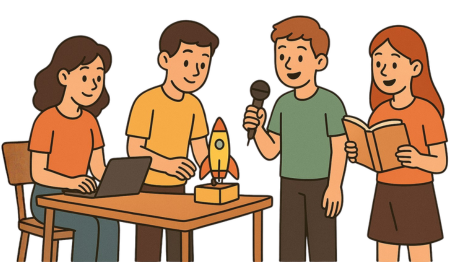
🧭 Teachers: The New Mentors
And what about the profesores? Don’t worry — they haven’t vanished. In Alpha Schools, teachers evolve.
They’re no longer standing at the front of the room like omniscient wizards. They walk among students, like coaches, mentors, and sometimes co-conspirators. Their job isn’t to lecture — it’s to ignite.
If traditional teachers were like traffic cops keeping everyone in their lane, Alpha educators are more like travel guides saying, “Want to take a detour through curiosidad? Let’s go.”
And because AI handles the mechanics, teachers get to focus on the magia — human connection, empathy, comunicación, and guiding the unpredictable chaos of creativity.
Of course, not every classroom gets to sip from the Alpha magic fountain — and that’s where reality checks in.
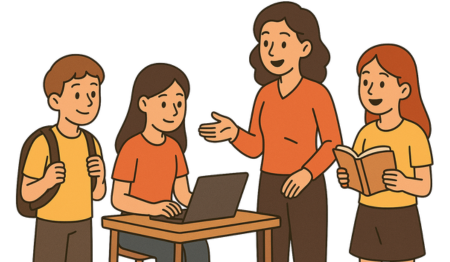
⚖️ The Equity Equation
But let’s not romanticize this too quickly. There’s a real challenge here: equity.
Access to Alpha-style education isn’t yet universal. Technology, resources, and trained facilitators aren’t evenly distributed. And as usual, innovation risks becoming another privilege unless we’re intentional about inclusion.
Yet, there’s hope. Many of these schools are experimenting with scholarship models, community partnerships, and open-source AI platforms to make the approach accessible. The dream isn’t to create elite bubbles; it’s to rewrite the operating system of learning for everyone.
Because if education is truly about opportunity, then personalization shouldn’t be a luxury — it should be the baseline.
And when access is equalized, the real transformation begins: students start taking the reins of their own learning.
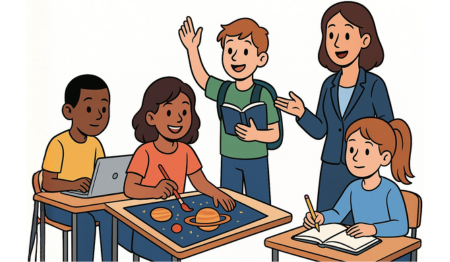
🧩 What Happens When Learning Gets Personal
One of the strangest side effects of Alpha-style learning is how it restores ownership.
Students suddenly feel that what they learn belongs to them, not to a system. They start managing their time, setting their own goals, and measuring success through progress — not permission.
The classroom becomes a microcosm of real life:
- You learn to fail faster.
- You discover feedback is fuel.
- You realize discipline isn’t punishment — it’s freedom.
In short, students stop asking “Will this be on the test?” and start asking “Can I try this idea?”
That shift — from memorization to motivation — is what makes Alpha Schools feel less like institutions and more like incubators.
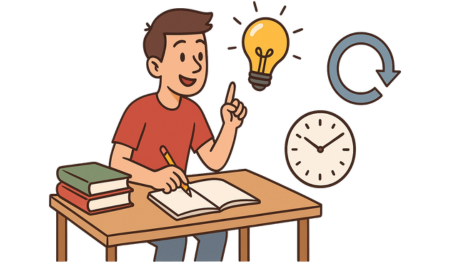
🌎 From Classrooms to Launchpads
Traditional schools were built for the Industrial Age — bells, schedules, hierarchies, and grades optimized for efficiency. Alpha Schools are built for the Creative Age, where flexibility and curiosity are more valuable than obedience.
You can already see the cultural ripple effect. Companies are hiring people for creativity, adaptability, and problem-solving. Alpha’s model trains exactly that — not by telling students to “be creative,” but by giving them time, tools, and trust to actually create.
When learning feels relevant, school stops being preparation for life — it becomes part of life. From AI-assisted mastery to human-guided mentorship, every piece of the day is designed for one thing: real-life creativity.
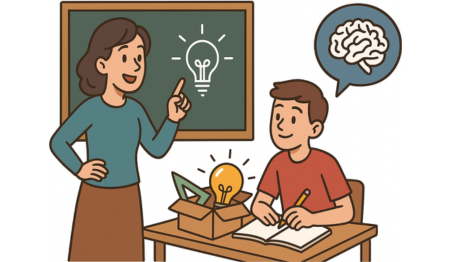
🧬 The Human Side of AI
And here’s the irony: the more AI enters education, the more human it all starts to feel.
Because when algorithms handle the mechanical stuff, what’s left are the things only humans can do — empathy, storytelling, humor, ethics, connection.
It’s the same in art, language, and teaching: the moment technology takes over the routine, the human element becomes sacred again.That’s the paradox Alpha Schools are teaching us — that the future of education isn’t about replacing people with AI, but rediscovering what makes people irreplaceable.
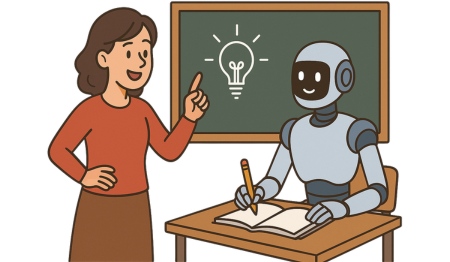
🪞So, What Are We Really Learning?
Maybe the real lesson here isn’t about schools at all. It’s about evolution.
Every generation has its “What were they thinking?” moment. We once thought learning Latin by candlelight was the peak of intellectual achievement. Then came chalk, then books, then laptops, and now — AI tutors.
But beneath all the upgrades, the goal remains the same: to understand, to imagine, to grow.
Alpha Schools aren’t just an experiment in education. They’re a statement — that curiosity still matters, that teachers still matter, that creativity might just save us from our own algorithms.
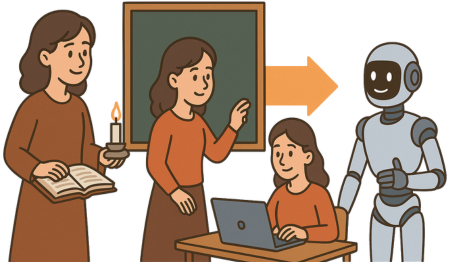
🗣️ Spanish: The Language of the AI-Fueled Future
If AI can redesign school, it can absolutely redesign language learning — and that’s where Spanish takes center stage.
Spanish isn’t just a subject anymore. It’s a superpower, a bridge between cultures, and a tool for creative thinking. In an Alpha-style environment, kids won’t just memorize vocabulary lists or drill verb conjugations. They’ll use Spanish to create, connect, and innovate.
- For kids: AI tutors can adapt lessons to each student’s pace. One minute it’s storytelling, the next, podcasting, then collaborative coding — all in Spanish. Grammar and vocabulary are absorbed almost unconsciously because the language is living and breathing.
- For adults and parents: Your living room becomes a Spanish playground. AI helps with pronunciation, conversation practice, and personalized exercises that fit your lifestyle — not the other way around. Learning becomes immersive, social, and even fun.
Spanish becomes more than a class. It’s a daily tool for thinking, creating, and connecting. And when AI handles repetitive correction, humans — teachers, parents, mentors — can focus on what machines can’t: context, culture, humor, and empathy.
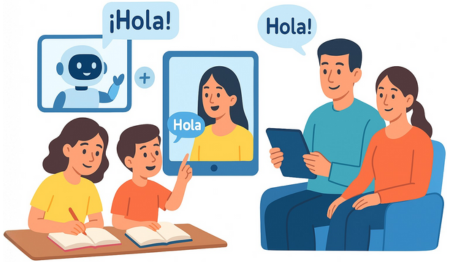
🏫 Could KDF Become an Alpha School?
Here’s the exciting part: KDF isn’t just teaching Spanish. It’s already doing Alpha-style things, even if we don’t call it that yet:
- Personalized learning: Each student moves at their own pace, with lessons adapted to their strengths and curiosities.
- AI-assisted guidance: Pronunciation checks, instant feedback, practice loops — without the boring repetition.
- Creativity at the core: Kids don’t just learn Spanish; they write stories, record podcasts, perform skits, and experiment with the language in real contexts.
- Mentorship over instruction: Teachers guide and inspire, giving the human touch that AI can’t replicate.
Put it together, and KDF is shaping up to be a mini Alpha School for Spanish, where language isn’t just learned — it’s lived, made, and celebrated.

🚀 The KDF Advantage
Imagine a class where:
- A 10-year-old is hosting a mini podcast in Spanish about her favorite books.
- Parents join AI-powered workshops and finally pronounce “río” correctly without embarrassment.
- Students measure success not by tests, but by what they can actually say, write, and create in Spanish.
This isn’t a future dream. It’s happening now at KDF. With AI handling repetition, teachers can focus on storytelling, mentorship, and human connection, while students explore Spanish in ways textbooks never could.
Learning Spanish becomes less about memorizing rules and more about living the language, creating with it, and having fun along the way — the exact DNA of an Alpha School.

🌟 KDF: Alpha Spanish for the Future
At KDF, Spanish isn’t just a subject — it’s a living, breathing adventure. Kids, adults, and parents explore the language through creativity and real-world use, not endless drills.
- Students tell stories, make videos, and play games in Spanish, turning learning into creation.
- Adults practice Spanish in meaningful ways, connecting with culture, ideas, and people, not just grammar.
- Every lesson becomes an experiment, a chance to try, fail, and discover, making Spanish a tool for thinking, imagining, and connecting.
KDF becomes a mini Alpha School: a space where language, imagination, and human connection come first — and AI quietly supports the process without ever taking the fun away.
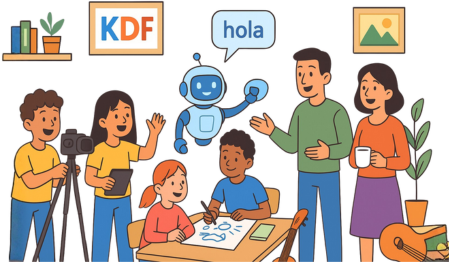
🚀 Spanish as a Superpower
The new generation won’t just know Spanish — they’ll think, create, and collaborate in Spanish. At KDF, learning the language is a way to see the world differently, make something new, and connect across ages and cultures.
The mission is simple: turn every lesson into curiosity, every conversation into confidence, and every project into possibility. With AI in the background and humans in the spotlight, Spanish learning becomes alive, playful, and unapologetically human.
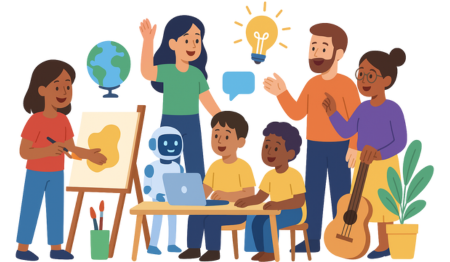
✏️ Want to See It in Action?
If this sounds like the kind of school you wish you went to, you’re not alone. At Kasa de Franko, we’re diving deeper into this topic with an upcoming online event:
“Alpha Schools in the US” — November 7–8, 2025
💻 Online (in English) | 🎟️ $35 | 🕑 Variable session times
We’ll explore how AI is reshaping classrooms, what teachers can learn from the Alpha model, and whether creativity really can replace homework.
Join us if you want to be part of the next chapter in education — one where learning finally catches up with life.
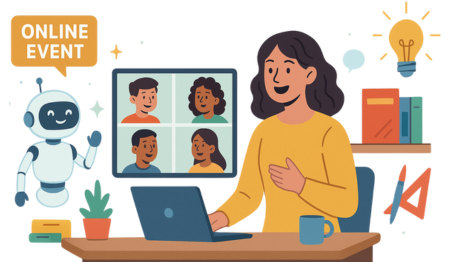
🎉 Try KDF for Free: Experience Alpha-Style Spanish Learning
Curious to see how learning Spanish can actually be fun, creative, and real? At Kasa de Franko, we’re inviting you to experience it firsthand — no strings attached.
- Kids, parents, and adults can join a free trial lesson tailored to your pace and interests.
- Explore Spanish through storytelling, games, podcasts, and projects — not boring drills.
- Experience how AI helps guide practice while teachers focus on mentorship, humor, and human connection.
- Feel what it’s like to learn Spanish the Alpha way: interactive, playful, and 100% alive.
Whether you’re just starting or want to take your skills to the next level, this is your chance to see why KDF is a mini Alpha School for Spanish learners.
📅 Sign up today for your free lesson and start learning Spanish in a way that’s engaging, creative, and unapologetically human.

